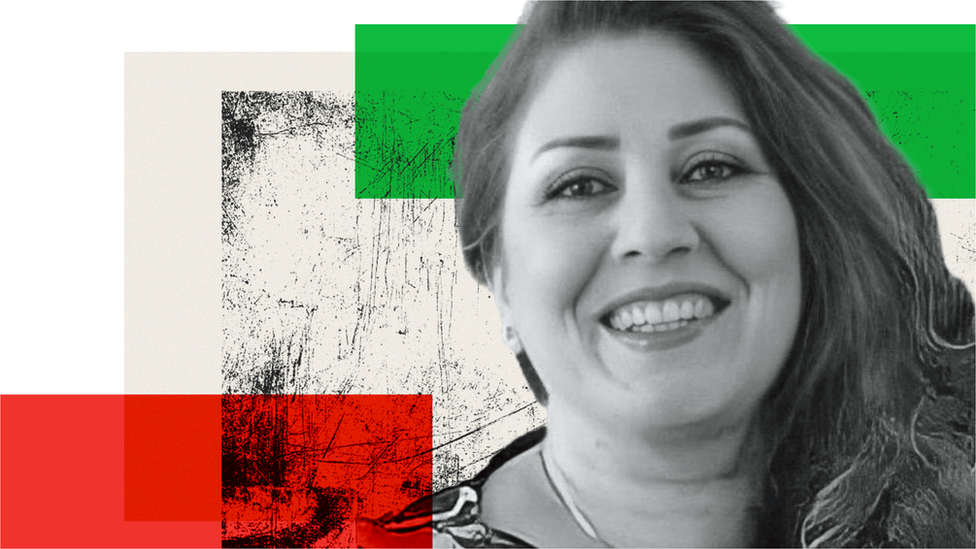Narges Mohammadi: Iranian woman jailed for rights work wins Nobel Peace prize
- Published
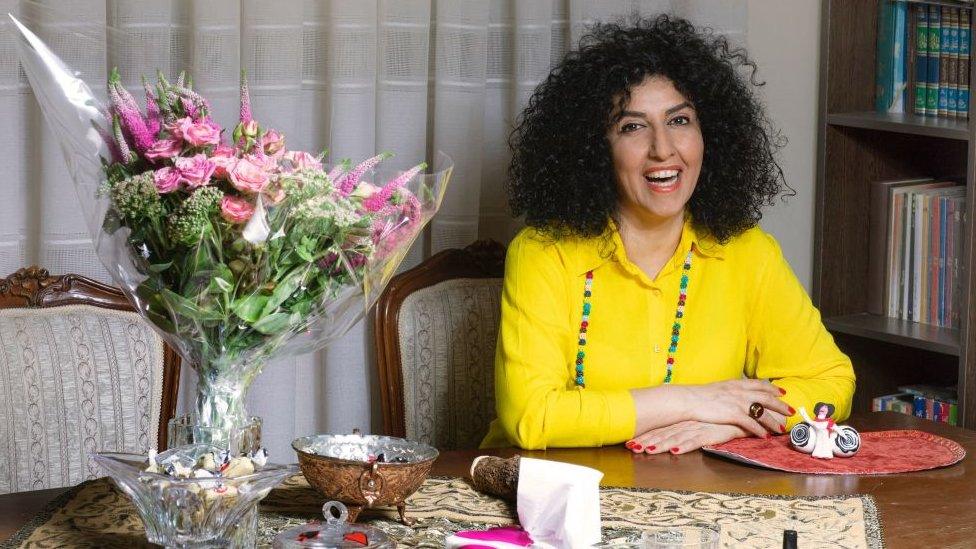
Narges Mohammadi received her award for fighting oppression of women and promoting human rights
Imprisoned Iranian human rights activist Narges Mohammadi has won the 2023 Nobel Peace Prize.
Announcing the decision, the Norwegian Nobel Committee said Ms Mohammadi, 51, was honoured for her fight against the oppression of women in Iran.
Her struggle has come at a "tremendous personal cost", committee chairwoman Berit Reiss-Andersen said.
Ms Mohammadi is currently serving a 10-year jail term in Iran's notorious Evin prison in the capital, Tehran.
Iran's foreign ministry said the award was "biased" and in line with "the interventionist and anti-Iran policies of some European countries".
US President Joe Biden called on the Iranian government to free Ms Mohammadi as he praised her "unshakeable courage", while French President Emmanuel Macron said she was a "freedom fighter".
At Friday's ceremony in Oslo, Ms Reiss-Andersen said the prestigious award was given to Ms Mohammadi for "her fight against the oppression of women in Iran and her fight to promote human rights and freedom for all".
She began her address with the words "woman - life - freedom" - a reference to the motto of recent mass protests sweeping Iran.
She went on to describe the prize as recognition of the hundreds of thousands of Iranians who have demonstrated over the past year against the "theocratic regime's policies of discrimination and oppression targeting women" - a movement headed, she said, by the new Nobel prize winner.
Millions of Iranians will be cheering this award along with human rights activists around the world. The Nobel committee decision also sends a very strong signal of disapproval to the Iranian authorities.
At the ceremony, Ms Reiss-Andersen also urged Iran to release Ms Mohammadi from jail so she could attend the prize ceremony in December.
"If the Iranian authorities make the right decision they will release her so she can be present to receive this honour, which is what we primarily hope for."
But it seems highly unlikely that the activist will actually be able to pick up her prize.
The UN said the award highlighted "the courage and determination of the women of Iran and how they are an inspiration to the world".
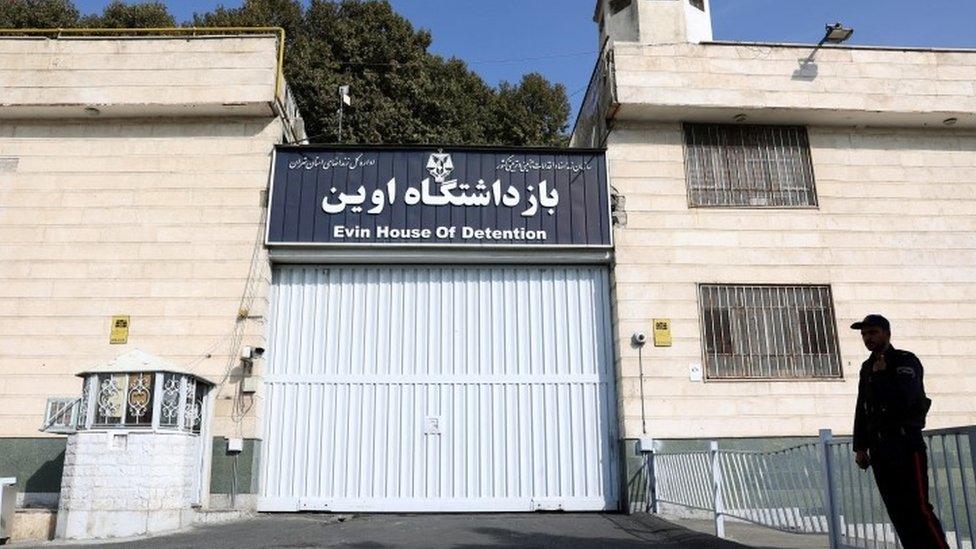
Ms Mohammadi has revealed harrowing details of how women are being abused in Tehran's Evin prison
Nazanin Zaghari-Ratcliffe, a British-Iranian national who spent time in Evin jail with Ms Mohammadi until she was released in March 2022, said she was pleased for her friend.
"It makes me cry. She did so much for all of us in Evin. Narges is an inspiration and a pillar to the women in the female ward in Evin for her fearless fight against violations of women's rights, the use of solitary confinement and execution in the judicial system in Iran.
"This award belongs to every single Iranian woman who, one way or another, has been and remains a victim of injustice in Iran."
Ms Mohammadi's son Ali Rahmani, whom she has not seen in eight years, was in class when he found out.
He told the BBC: "I was very happy and felt proud of my mum.
"It took a few moments for me to come to terms with it so in the beginning I was just very happy and proud of my mum just like I am always, like yesterday and the day before that. This award belongs to the Iranian people. It is because of the protests."
As well as her current jail term, Ms Mohammadi has been arrested 13 times, convicted five times and sentenced to a total of 31 years in prison. She has also been sentenced to 154 lashes - it is unclear whether that punishment has been carried out.
Last December, she wrote from prison to give the BBC harrowing details of how Iranian women detained in demonstrations were being sexually and physically abused.
She said such assaults had become more common during the protests, triggered by the death in police custody of 22-year-old Mahsa Amini in September 2022.
The unrest later spread across the country, with demands ranging from more freedoms to an overthrow of the state.
Images of Iranian women defiantly setting their headscarves on fire captivated the world. However the Iranian authorities have brutally cracked down on the protests and they have largely subsided.
Ms Mohammadi is deputy head of the Defenders of Human Rights Center.
Speaking to the BBC in 2020, Ms Mohammadi explained why she was dedicating herself to advancing women's rights in Iran.
"In my opinion, supporting human rights efforts and actions aimed at achieving freedom and justice anywhere in the world, whether in Iran or any other country, is very important and very heart-warming," she said.
Last year, she was included in the BBC's 100 Women - a high-profile list of 100 inspiring and influential women from around the world.
Watch: The secret diaries of women protesting in Iran
Related topics
- Published6 October 2023
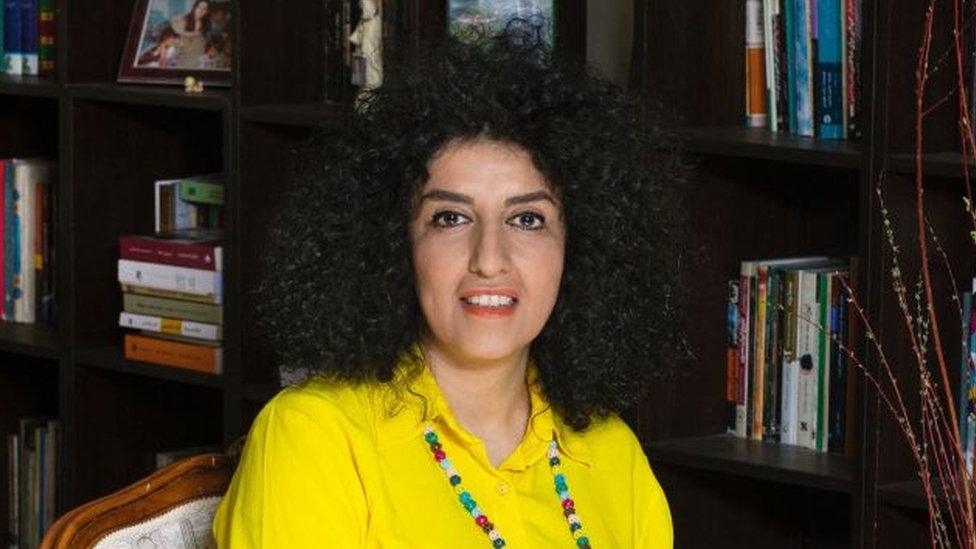
- Published2 September 2023
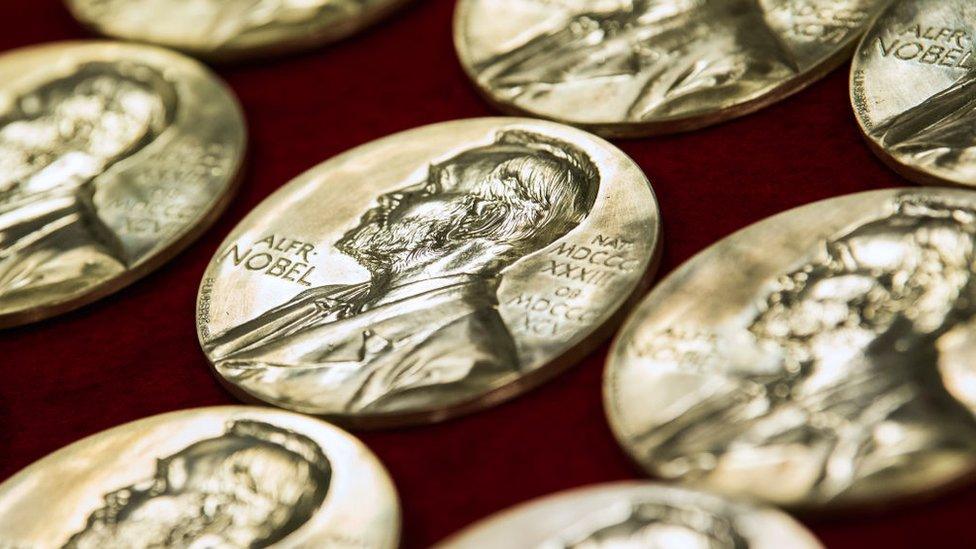
- Published24 December 2022
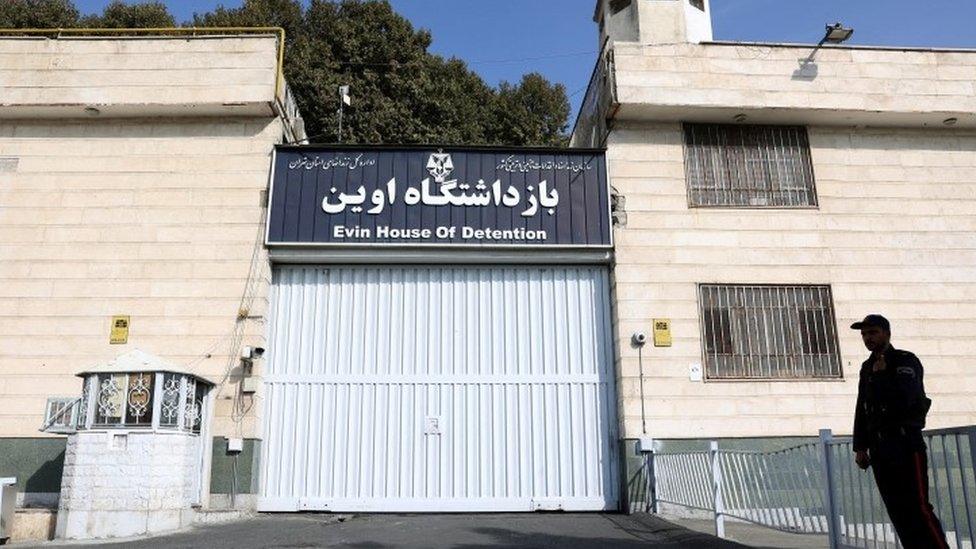
- Published19 December 2022
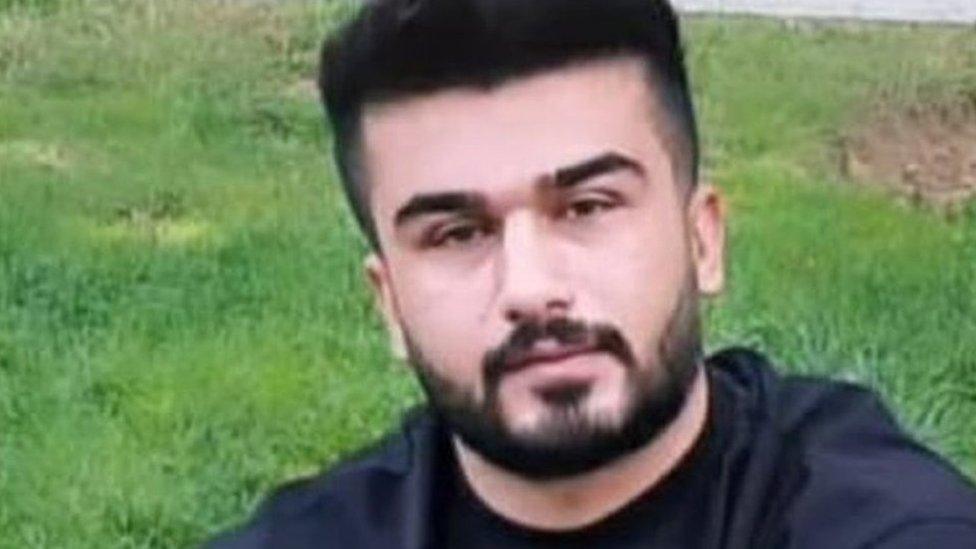
- Published12 December 2022
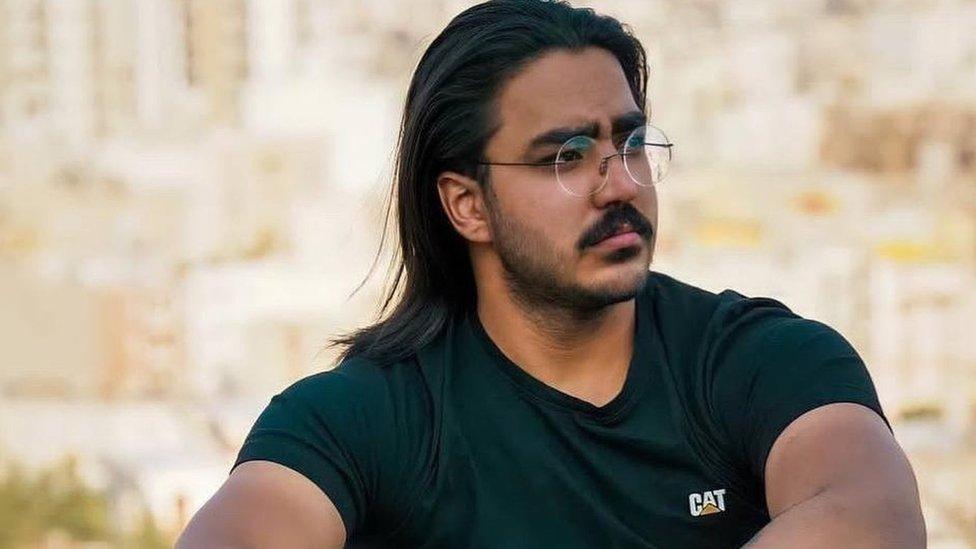
- Published17 November 2022
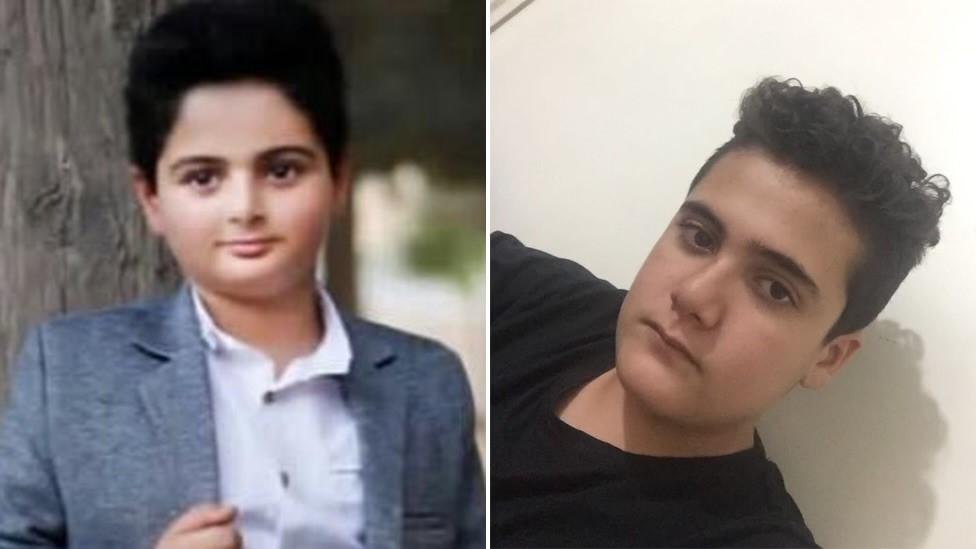
- Published4 November 2022
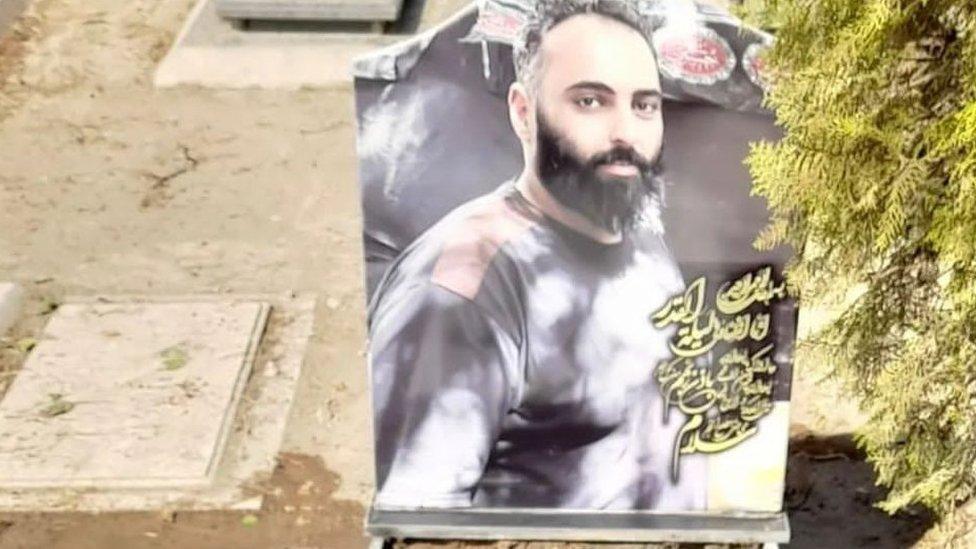
- Published6 December 2022
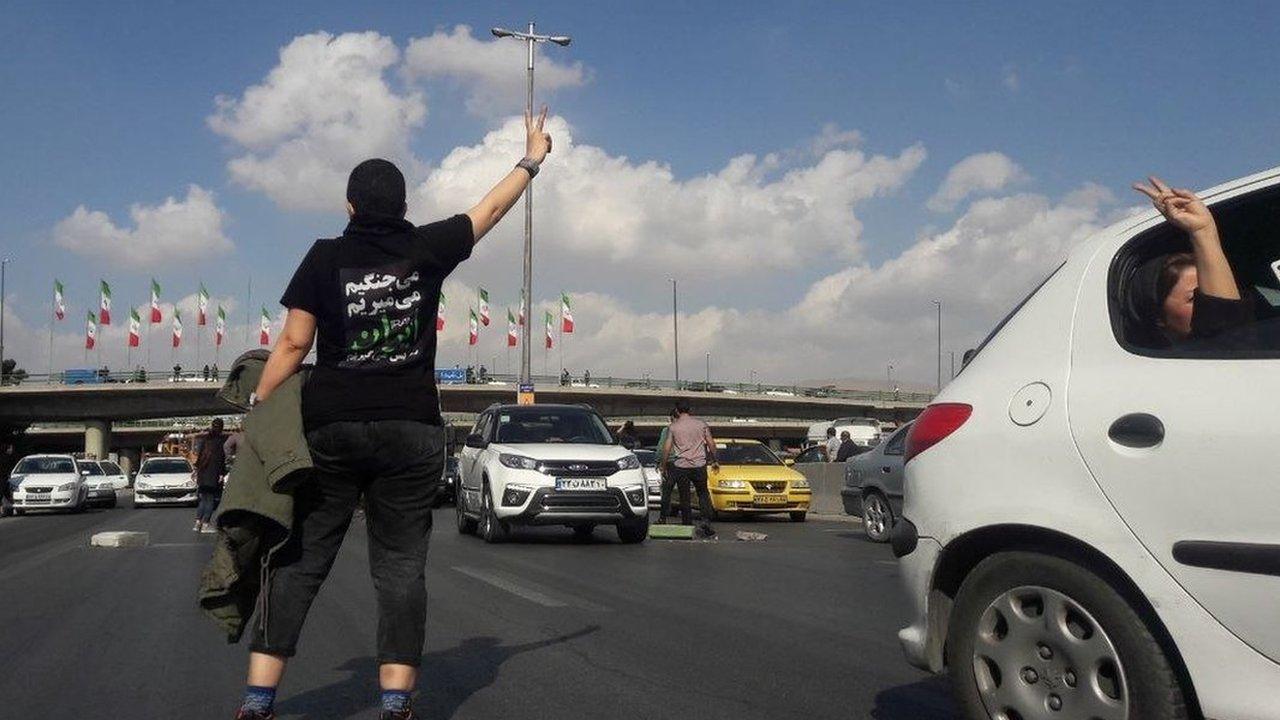
- Published6 December 2022
